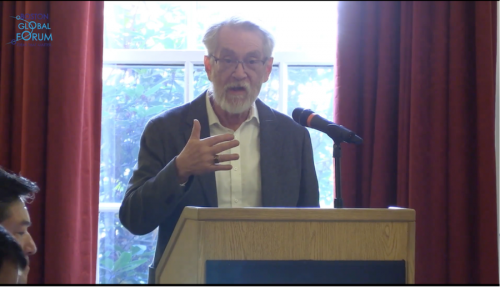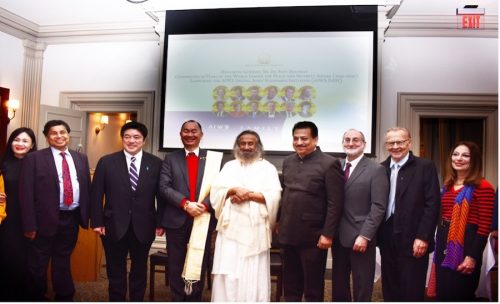This is an excerpt of the executive summary of the report published by the Tony Blair Institute for Global Change.
With costs mounting, backlogs growing and outcomes worsening, it should be clear to every political leader that the way government runs no longer works.
Outside the public sector, a great change is underway. The combination of massive volumes of data, ubiquitous cloud and powerful processors has created a self-reinforcing feedback loop of innovation and growth.
The latest iterations of artificial-intelligence systems – generative AI such as large language models (LLMs) – are matching humans for quality and beating them on speed and cost. Knowledge workers using the GPT-4 model from OpenAI completed 12 per cent more tasks, 25 per cent quicker, with a bigger boost in productivity for less-skilled workers. Businesses using AI tools are 40 per cent more efficient and have 70 per cent higher customer and employee satisfaction than businesses that do not.
And unlike previous generations of AI systems, which had to be custom-built, generative AI is general-purpose, opening up a wide range of applications.
In the private sector, the transformation is accelerating. Leading tech companies are reportedly planning investments of more than $250 billion in chips, compute and data centres. Corporate investment in AI since 2020 is close to $1 trillion. Adoption is soaring: within nine months of launch, ChatGPT was in use in 80 per cent of Fortune 500 companies. Spending on generative AI systems by European businesses is expected to grow by 115 per cent in 2024. By 2025, Goldman Sachs expects AI investment to reach $200 billion a year globally. By 2028, analysts expect the global market for AI to exceed $1 trillion in size.
In the public sector, profound changes are now possible. Harnessing AI tools could repair the relationship between government and citizens, put public services on a new footing and unlock greater prosperity.
This prospect should be exciting in its own right, but in reality it is the only path forward. The public sector is on its knees, with large backlogs and lengthy waits for services, a demoralised, unproductive workforce and a lack of long-term thinking as policymakers go from crisis to crisis. Adopting AI in the public sector is a question of strategic prioritisation that supersedes everything else. The UK cannot be consumed by old debates when the real issue is AI.
AI could make countless tasks performed by public-sector workers every day better, faster and cheaper. It could help them to match service supply to demand, accelerate processing of planning applications or benefits claims, upgrade investigations and analysis, communicate with citizens better, collect and process information for transactional services, model and intervene in complex systems, expedite research and support tasks, manage diaries, draft notes and much, much more.
In fact, the UK government believes that up to a third of public-sector tasks could be improved with AI. Now, TBI analysis shows that, after accounting for upfront and ongoing costs, the UK stands to gain £40 billion per year in public-sector productivity improvements by embracing AI, amounting to £200 billion over a five-year forecast.
The public sector cannot afford to leave this on the table.











